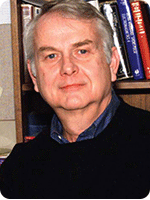Quark Quartet Fuels Quantum Feud
- Details
- Category: Department News
- Published: Friday, September 05 2014 10:58
Professor Thomas Cohen weighs in on the correct picture of matter at the quantum scale. (Quanta Magazine)
Professor Thomas Cohen weighs in on the correct picture of matter at the quantum scale. (Quanta Magazine)
| Ki-Yong Kim has received the 2014 Richard A. Ferrell Distinguished Faculty Fellowship, which recognizes outstanding personal effort and expertise in physics as well as dedicated service to the UMD Department of Physics. The Fellowship, established in 2001, honors Dr. Richard A. Ferrell, a deeply-respected physicist who joined the University in 1953, served 40 years, and remained active in the department even after his retirement. Dr. Ferrell died in 2005 at his nearby University Park home. Kim is an Associate Professor studying optical science, including intense, ultrafast laser interaction with atoms, molecules, solids, and plasmas. |
|
| Professor Phillip Sprangle has won the 2014 Advanced Accelerator Concepts Prize (AAC). This prize is awarded every 2 years at the AAC workshop, which is the premiere (invitation-only) meeting in the world for new ideas in accelerator physics and applications. The AAC Prize consists of a cash award, plaque, certificate, and much recognition as the competition is fierce. |
|
Ike Uchenna Chukwu and Burkley Patterson were recently both named recipients of the 2014 IPST Monroe Martin Prize for Undergraduate Research in Physics.
Burkley's work was titled "Construction and Experiments with a Cavity QED system." He will be continuing his work, now as a graduate student, in Luis Orozco's Cavity QED experiment, which is supported by NSF.
Ike worked on a "Two-Dimensional Magneto-Optical Trap with Rubidium Atoms." His research was part of the "Atoms on Squids" experiment, which is supported by the NSF PFC@JQI.
http://jqi.umd.edu/news/two-jqi-undergraduates-honored-their-thesis-work
